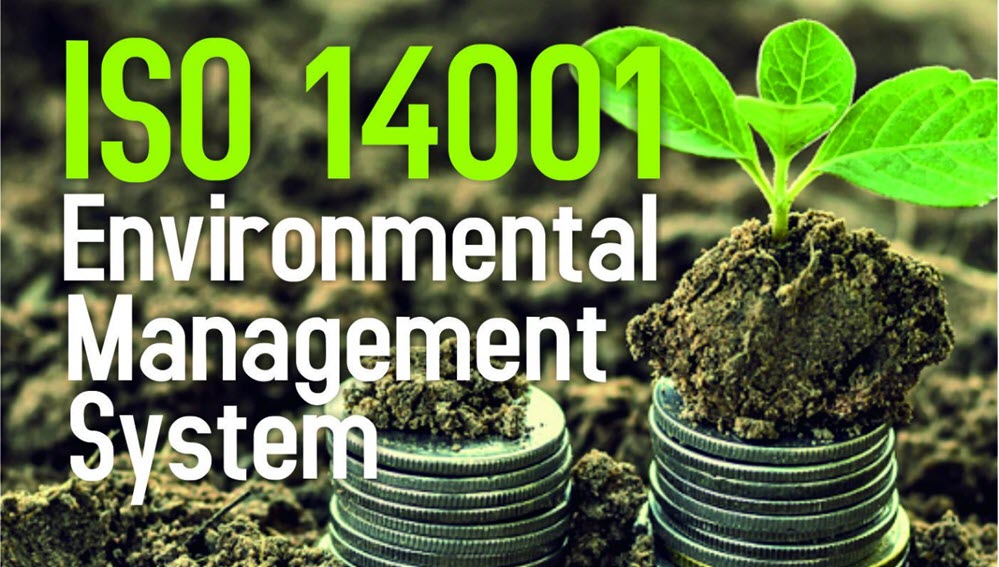EQMS Blog

What Is Risk Based Thinking In ISO 14001
Introduction
The ISO 14001 standard is a globally recognised management system for environmental protection. It aims to help organisations manage their environmental impacts in a systematic way and provides a framework for continuous improvement. One of the key elements of the standard, is the concept of risk-based thinking in ISO 14001. This approach helps organisations identify, prioritise, and address potential environmental risks and opportunities. In this article, we will discuss what risk-based thinking is and how it can be applied in ISO 14001.
What is Risk-Based Thinking?
Risk-based thinking is a proactive approach to managing risks and opportunities in any organisation. It involves identifying, assessing and prioritising potential risks and opportunities, and then taking action to address them. In the context of ISO 14001, risk-based thinking means that organisations must consider environmental risks and opportunities throughout their operations and implement controls to prevent or mitigate potential negative impacts.
The ISO 14001 standard requires organisations to take a systematic approach to environmental management. This involves identifying the environmental aspects and impacts of their activities, products and services. Then implement controls to manage them. Risk-based thinking is a key part of this process, as it helps organisations prioritise their efforts and resources to address the most significant environmental risks and opportunities.
Key Principles of Risk-Based Thinking in ISO 14001
There are several key principles of risk-based thinking in ISO 14001, that organisations should follow to effectively manage their environmental risks and opportunities. These principles include, but is not limited to, the following.
Identifying and assessing environmental risks and opportunities
The first step in risk-based thinking is to identify and assess the environmental risks and opportunities associated with an organisation’s activities, products and services. This involves evaluating the likelihood and potential impacts of these risks and opportunities. Then prioritise them based on their significance.
Implementing controls to manage risks
Once environmental risks have been identified and prioritised, organisations must implement controls to manage them. This may involve developing policies, procedures, and other measures to prevent or mitigate negative environmental impacts.
Monitoring and reviewing risks and controls
Risk-based thinking requires ongoing monitoring and review of environmental risks and controls to ensure that they remain effective. This includes conducting regular audits and assessments to identify new risks or changes in existing risks, as well as evaluating the effectiveness of existing controls.
Continual improvement
Finally, risk-based thinking is an ongoing process of continual improvement. Organisations must regularly review and update their environmental management systems to ensure that they remain effective in addressing environmental risks and opportunities.
Benefits of Risk-Based Thinking in ISO 14001
There are several benefits to implementing risk-based thinking in ISO 14001. This include, but is not limited to, the following.
Improved environmental performance
By identifying and prioritising environmental risks and opportunities, organisations can take a more targeted approach to environmental management. This can lead to improved environmental performance and a reduced environmental footprint.
More efficient use of resources
Risk-based thinking helps organisations focus their efforts and resources on the most significant environmental risks and opportunities. This can lead to a more efficient use of resources, as organisations are not wasting time and resources on risks that are less significant.
Better stakeholder engagement
Effective risk-based thinking can help organisations engage with stakeholders, including customers, employees, and local communities. By demonstrating a commitment to environmental management and addressing the concerns of stakeholders, organisations can build trust and goodwill.
Conclusion
Risk-based thinking is a key element of the ISO 14001 standard and it is essential for effective environmental management. By identifying and prioritising environmental risks and opportunities, organisations can take a more targeted approach to environmental management, improve their environmental performance and build trust with stakeholders. As environmental issues continue to be a growing concern, implementing risk-based thinking in ISO 14001 is more important than ever for organisations of all types and sizes.
If you are interested in support with implementing an ISO 14001 Environmental Management System (EMS), then feel free to contact us for a free consultation.
Continue to ISO 14001 Consultants
Request a free consultation
Contact us to discuss your needs and see how we can support to reach your goal.

Recent posts

In today's digital age, businesses are constantly exposed to various cyber threats. As a result, companies must adopt a proactive approach to cybersecurity to prevent data breaches, theft, and other...

Quality management systems are essential in ensuring that organisations can deliver quality products and services consistently. The International Organisation for Standardization (ISO) developed the ISO 9001 standard to help organisations...

ISO 14001 is a globally recognised standard for environmental management systems (EMS) that helps organisations manage their environmental impact and improve their sustainability performance. Obtaining this certification demonstrates a company's...
Just a Few of Our Clients
Request a Free Consultation
Contact us to discuss your needs and see how we can support to reach your goal.












